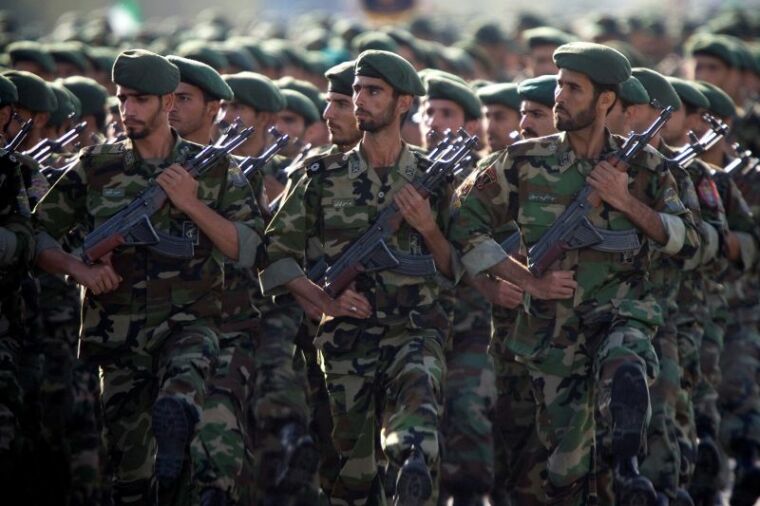Iranian commander says infiltrators will be ready to attack INSIDE America

TEHRAN (Christian Examiner) – While Americans focus on the scandal-plagued 2016 presidential election, Iran appears to making plans for war on U.S. soil.
The Washington Free Beacon reports one of Iran's top military commanders has been tasked with sending "assets" to infiltrate America and Europe and to put those agents into action should war come between the U.S. and the Shiite Islamic republic.
Speaking in Farsi, Salar Abnoush, deputy commander of Iran's Khatam-al-Anbia garrison, a special operations component of the Iranian Revolutionary Guard Corps, said Supreme Leader Ali Khamenei had given instructions to deploy the specialized troops. He said the infiltrators "will be in the U.S. and Europe very soon."
"The IRGC is [the] strong guardian of the Islamic Republic," Abnoush told the state-run media. "The Fedayeen [guerillas] of Velayat [the Supreme Leader] are under the order of Iran's Supreme leader. Defending and protecting the Velayat has no border and limit."
In October, Yemeni Houthi militants – likely backed by Iranian military cadre – fired missiles at U.S. warships in the Persian Gulf on multiple occasions. The missile launches have been regarded both as isolated attacks, but also as a test of the U.S. Navy's response to such attacks – in preparation for a much large conflict.
And since the U.S. delegation worked out a widely criticized nuclear agreement with Iran and paid the country $1.7 billion in cash, Iran has put hundreds of millions into military expenditures. As it has done so, high ranking officials in the military have advocated conflict with the U.S. They regarded the nuclear deal as a surrender on the part of the U.S. and its allies, Abnoush said.
"Our enemies have several projects to destroy our Islamic revolution, and have waged three wars against us to execute their plans against our Islamic Republic," Abnoush said. "The IRGC has defeated enemies in several fronts. The enemy surrendered and accepted to negotiate with us."
"And now all of our problems are being solved and our country is becoming stronger in all fronts. Some believe the holy defense ended," the military leader added. "They are wrong; the holy defense continues, and today, it is more complicated than before."
Iran, according to the Washington paper, is increasingly frustrated with the U.S. for blocking some paths to international banks, and the country's Supreme leader is stoking the nostalgic "defeat" of America in 1979 when Iranian "university students" captured "U.S. spies" at the American embassy in Tehran.
In an address to students celebrating the Nov. 4 anniversary of the embassy assault, Khamenei said there was no need to negotiate further with the U.S. because America could not be trusted. He also said the U.S. was consumed by its own problems.
"Negotiations with the US will not resolve our problems, because firstly, they are liars, disloyal and cheaters and [they are ones who] stab in the back. And secondly, the U.S. itself is crisis-stricken, and how can a crisis-hit country resolve another country's problems?" Khamenei said.
The Free Beacon also reports that Iran has developed a "very public" program of assassination of its political enemies in the Middle East and abroad. Congressional watchdogs are reportedly monitoring the activity and Iran's military buildup.
"If we look at Iran's previous terror attacks and assassination campaign around the world, such a statement [as the one from Abnoush] is alarming," Saeed Ghasseminejad, who specializes in analyzing Iran for the Foundation for the Defense of Democracies, told the paper.
"The Islamic Republic has killed hundreds of Iranians and non-Iranians around the world in a coordinated campaign of terror. Iran may decide to restart the project now that many western companies are going to Iran and Iran feels its action in Europe may not be punished strongly," Ghasseminejad said.
In August, a U.S. military spokesman in Iraq said about 80,000 Iranian-backed fighters were also in that country attempting to defeat ISIS, but also to prevent a greater level of U.S. intervention. Most of those fighters are Iraqi Shiites, but the cadre or leaders of the groups may be experienced Iranian fighters. An unnamed source also told FOX News that Iran was allowing Russia to operate its bombers from bases inside the country.